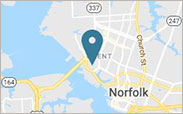Service Work Policy pertaining to clinical clerkships
At no time should students be utilized in such a way that they are substituted for regular staff or employees (Service Work) during the clinical practice portion of their education. Students, with qualified supervision, may be permitted to perform procedures after demonstrating proficiency. Service work by students in clinical settings outside of academic hours must be noncompulsory. Students cannot be utilized as regular staff at the affiliate.
Student Guidance Policy
Any student receiving advice or requesting counseling for academic performance or any personal issues, that may arise during the course of the program, will be addressed with full confidentiality and impartiality.

/prod01/channel_41/media/evms_public/departments/health_professions/pathologist_assistant/PathAHeroOption2.jpg)
/prod01/channel_41/media/evms_public/departments/health_professions/pathologist_assistant/patha_carousel/PathA-AdrenocorticalAdenoma-Carousel-Caption.jpg)
/prod01/channel_41/media/evms_public/departments/health_professions/pathologist_assistant/patha_carousel/PathA-AutosomalDominantPolycysticKidney-Carousel-Caption.jpg)
/prod01/channel_41/media/evms_public/departments/health_professions/pathologist_assistant/patha_carousel/PathA-MetastaticProstaticCarcinoma-Carousel-Caption.jpg )
/prod01/channel_41/media/evms_public/departments/health_professions/pathologist_assistant/patha_carousel/PathA-BronchogenicCarcinoma-Carousel-Caption.jpg)
/prod01/channel_41/media/evms_public/departments/health_professions/pathologist_assistant/patha_carousel/PathA-AcuteBacterialMeningitis-Carousel-Caption.jpg)
/prod01/channel_41/media/evms_public/departments/health_professions/pathologist_assistant/patha_carousel/PathA-ColonCancer-Carousel-Caption.jpg)
/prod01/channel_41/media/evms_public/departments/health_professions/pathologist_assistant/patha_carousel/PathA-BreastCancer-Carousel-Caption.jpg)
/prod01/channel_41/media/evms_public/departments/health_professions/pathologist_assistant/PA_WhiteCoat-2018.jpg)
